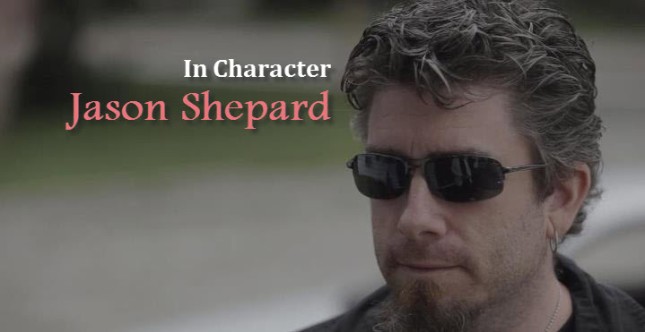I don’t think there’s any doubt that our country is facing a far-reaching marginalization of religion in general, and Christianity specifically. It is happening everywhere, at every level. The movement to purge Christianity from all aspects of public life is in full swing, led by men and women who have perverted the establishment clause. They have deceived a nation that doesn’t know any better, a nation that doesn’t even understand the rights granted them in the constitution, who would rather rely on quickly digestible sound bytes that “sound right” than actually be bothered to find out the truth for themselves. Wouldn’t want to miss JWOWW’s new show to educate ourselves now, would we?
Under the guise of “progress” or “progressive thought” these people have convinced others that the so-called “separation of church and state” (that phrase appears nowhere in the constitution or the Bill of Rights) means that religion should be utterly banished from every corner of the earth and relegated to quiet time in the privacy of your own home or church. That no one should ever have to actually see or hear about anyone practicing their faith, ever, because it may offend them.
Of course, they ignore the fact that a Creator is invoked several times in the very same constitution. They also ignore the numerous historical writings that establish most of the founding fathers as theists, if not Christians. And they ignore the specific verbiage of the establishment clause itself (and its companion, the free exercise clause), reducing it to a catch phrase that other brainwashed masses can latch on to and mindlessly repeat. I’m referring to the part which says, congress shall make no law respecting an establishment of religion, or prohibiting the free exercise thereof.
Wait…I don’t see anything about abolishing religion. I don’t see any reference to atheists having the right to sue anyone and anything that offends their apparently delicate sensibilities. What I see is protection for those who wish to follow a religion. I see the government being told not to establish a national church (and later, through the 14th Amendment, this would also apply to the State governments, as well as Federal).
The establishment clause was meant to protect religion from the government, not to protect the public from ever being exposed to religion or, heaven forbid, being offended by it. And even though people today have unparalleled access to virtually the entire sum total of human knowledge right at their fingertips, they’d rather take the words of angry atheist liberals spewing hate-filled venom, than to lift a finger and educate themselves properly.
As a result of these efforts, Christianity has been viciously attacked and marginalized, while many who follow it are content to do nothing. Or perhaps the correct phrase is, they are incapable of doing anything. That’s because, like their more secular counterparts, they are content with a minimal education about the subject matter, just enough to get them by but not enough to actually take their time and attention away from other matters. This tendency seems rampant in these last few generations.
But in times of crisis, sleeping giants sometimes awaken, and some of these folks are starting to do just that. Some of them are tired of being bullied and pushed around by angry atheists with an axe to grind against God, who beat everyone over the head with the word “reason” like they came up with it. (Mind you, their “reason” is typically a dash of science intermixed with an abundance of repressed anger at “religion” and God.)
Behold, I have refined you, but not as silver. I have tried you in the furnace of affliction. (Isa 48:10). In-context, this verse is discussing the refinement of Israel as a nation. But looking at where we are right now, I think we have little choice but to see this present darkness as a similar opportunity to be cleansed and refined. It’s time to let go of our complacency and realize that there’s a lot at stake here.
Christians in America have never been challenged like this before. We’ve spent the past two hundred years enjoying a free ride. We’ve never had to really get into why we believe what we believe. We were the defacto “religious experience” of the past two centuries. Thus, it’s truly frightening, the number of people who really don’t know the why of their faith. This year, I spoke to a number of Catholics regarding their tradition of getting marked on Ash Wednesday. Not one of them could give a reason why this is observed. When you don’t understand why, then the actions themselves become a meaningless, disassociated ritual. The response to why do you get marked on Ash Wednesday should not be, because I’m Catholic. This sort of thing makes assaulting Christianity incredibly easy.
So do trite platitudes and bumper sticker theology. Those small, digestible tidbits I was talking about earlier aren’t just the exclusive domain of the atheists or progressives. We’ve got plenty of our own. Clichés like “God doesn’t give you more than you can handle.” That’s a bastardization of 1 Corinthians 10:13, which is part of a larger passage discussing, specifically, temptation. “There has no temptation taken you but such as is common to man. But God is faithful, who will not suffer you to be tempted above that you are able; but with the temptation also make a way to escape, that you may be able to bear it.” I could spend a lot of time writing on that, but click here for a truly excellent article.
It’s time to stop helping those who want to shove us behind closed doors because they find our beliefs offensive. There’s not a law on the books that guarantees anyone’s right to never be offended by anything. I’m just as offended by their flagrant disregard for others’ beliefs and opinions, but I’m not trying to sue them into silence or take down their insipid billboards or prevent them from having their atheist rallies. In fact, I’m fine if someone wants to follow atheism. But when they try to push their religion (let’s not pretend it isn’t) on the rest of the world, that I have an issue with. And so should they, since one of their core issues with Christianity is that we “force it” on others. Live and let live only applies to this group if you agree with what they believe.
We are being threatened by those who would blindly (and gladly) march an entire nation – an entire world – into utter darkness. These people aren’t targeting Islam or Buddism or Scientology. They pay lip service to disliking “religion” but their focus is Christianity. God. That’s the reality we face. That’s the fire coming for us. We can either allow it to refine us, sharpen us, strengthen us, or we can burn in it.






